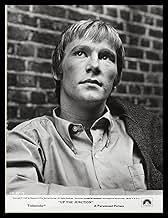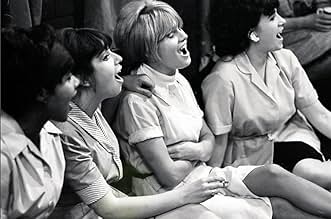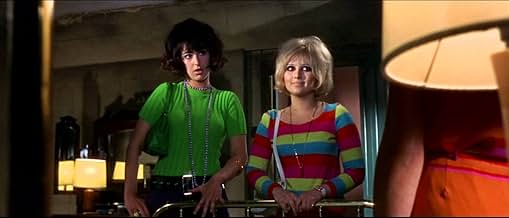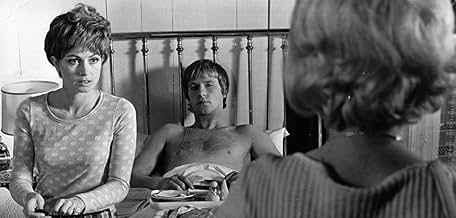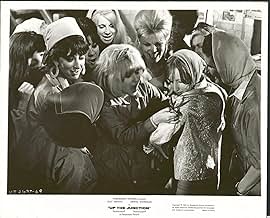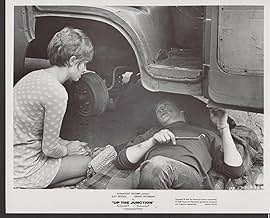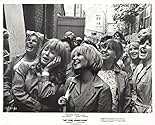AVALIAÇÃO DA IMDb
6,9/10
1,1 mil
SUA AVALIAÇÃO
Adicionar um enredo no seu idiomaAddresses some of the major 60s social issues - a bored rich London-girl from Chelsea decides to go "slumming" in depressed Battersea, getting a flat and starts factory-work and makes friend... Ler tudoAddresses some of the major 60s social issues - a bored rich London-girl from Chelsea decides to go "slumming" in depressed Battersea, getting a flat and starts factory-work and makes friends... of which one has to get an illegal abortion.Addresses some of the major 60s social issues - a bored rich London-girl from Chelsea decides to go "slumming" in depressed Battersea, getting a flat and starts factory-work and makes friends... of which one has to get an illegal abortion.
- Direção
- Roteiristas
- Artistas
- Prêmios
- 1 indicação no total
- Direção
- Roteiristas
- Elenco e equipe completos
- Produção, bilheteria e muito mais no IMDbPro
Avaliações em destaque
A very likeable if dated view of working class 60's London viewed the eyes of upper crust Polly Dean. Several tough and controversial issues (illegal abortions & wife beating) are covered which must have been brave at the time that the film was made. Strangely prophetic in the 'gentrification' of Battersea (one of the up-areas in recent property prices). Having been in the year I was born, I cannot fully comment on the authenticity of this films view of 60's life. However from my perspective and that of older relatives it is fairly accurate. The soundtrack (by Manfred Mann) is a superb slab of sixties beat\psychedelia. The characters are very likeable and the film is in my opinion a good introduction for any scholar of the period. 9/10
I first saw this film on late night TV in Melbourne, Australia, in the late 1980s. I love it then, but wasn't able to view it again until recently, and enjoyed it as much as my first viewing almost 30 years earlier.
One of the first things I remembered thinking after first viewing it is – why isn't this film better known? It's one of the great British films of the 1960s, and a fine example of the 'kitchen sink' genre. Added to that, it has superb widescreen cinematography – every scene is beautifully shot, the outdoor scenes particularly so. Working class London in the 60s was a ramshackle, beautiful if run-down environment. The film captures a lost world – it's a fascinating historical document as well as a serious movie.
The cast is spot on,it's all very believable, and the leads have a genuine chemistry. Suzy Kendall may have had a limited acting range – but she's perfect in this role. And so beautiful!
The story tackles all manner of social problems not just of the 60s, but universal ones applicable today as then. Some scenes are still quite disturbing to watch – this is not some 'swinging London' expose, but an accurate glimpse in to the life of working class Londoners before the gentrification process started.
I was fortunate to study British film at Monash Univeristy (Melbourne) under the great Brian MacFarlane in the 1990s. He's considered the world expert on British cinema, and was commissioned by the British Film Academy to write the authorised history of British cinema. One of the things MacFarlane consistently highlighted was the fact Brit film only began to portray the working class seriously from the late 1950s. Prior to that, working class were portrayed in movies as either servants, idiots, criminals or downtrodden miners etc. Up the Junction is a beautifully realised example of a time when the British finally began to take the working class seriously.
It's also the first film I can think of with a soundtrack written by a well known rock band – Manfred Mann. And though dated – the music is perfect for this film and captures something of the youth vibe then flowering across the western world. Truly – this is a shamefully underrated film and a must-see for anyone interested in London in the 1960s.
One of the first things I remembered thinking after first viewing it is – why isn't this film better known? It's one of the great British films of the 1960s, and a fine example of the 'kitchen sink' genre. Added to that, it has superb widescreen cinematography – every scene is beautifully shot, the outdoor scenes particularly so. Working class London in the 60s was a ramshackle, beautiful if run-down environment. The film captures a lost world – it's a fascinating historical document as well as a serious movie.
The cast is spot on,it's all very believable, and the leads have a genuine chemistry. Suzy Kendall may have had a limited acting range – but she's perfect in this role. And so beautiful!
The story tackles all manner of social problems not just of the 60s, but universal ones applicable today as then. Some scenes are still quite disturbing to watch – this is not some 'swinging London' expose, but an accurate glimpse in to the life of working class Londoners before the gentrification process started.
I was fortunate to study British film at Monash Univeristy (Melbourne) under the great Brian MacFarlane in the 1990s. He's considered the world expert on British cinema, and was commissioned by the British Film Academy to write the authorised history of British cinema. One of the things MacFarlane consistently highlighted was the fact Brit film only began to portray the working class seriously from the late 1950s. Prior to that, working class were portrayed in movies as either servants, idiots, criminals or downtrodden miners etc. Up the Junction is a beautifully realised example of a time when the British finally began to take the working class seriously.
It's also the first film I can think of with a soundtrack written by a well known rock band – Manfred Mann. And though dated – the music is perfect for this film and captures something of the youth vibe then flowering across the western world. Truly – this is a shamefully underrated film and a must-see for anyone interested in London in the 1960s.
An absolute must see for all lovers of 1960's culture. Not only does it boast some of the decades finest actors, it has a beautiful soundtrack from Manfred Mann and the cinematography perfectly captures the feel of what it was like to live in that decade. The plotline also deals with some of the pressing social issues of the time as well, including a very sensitive portrayal of back street abortion, the only one coming even slightly close to the masterly "Alfie". Even watching this film now, I think you can really get a feel for what it was like to be young and working class in the 1960's. Great Stuff.
A portrayal of women's lives in 1960s working class Battersea, through the eyes of a girl from Chelsea, hence an outsider. Based on the better known book by Nell Dunn, from which it departs significantly, making the ill-fated affair with Dennis Waterman's character the central narrative. Beautifully done. Deserves to be better known than it is.
Peter Collinson was already mellowing after his directorial debut with the incredibly nasty home invasion film 'The Penthouse' (1967); and let loose on Nell Dunn's stories in Technicolor with Manfred Mann on the soundtrack was obviously going to turn in a very different film from Ken Loach's 'Wednesday Play' of 1965.
What seemed like gritty realism in 1967 today seems as remote as the world evoked by Dickens (complete with Jewish stereotypes which really date it). Maureen Lipman is almost unrecognisably young and it's always good to see Adrienne Posta and Liz Fraser (who share a literally gut-renching sequence after the former has an abortion performed by a drunken Hylda Baker).
But the real star is Battersea power station, looming in the background back in the days when it was still permitted to smoke.
What seemed like gritty realism in 1967 today seems as remote as the world evoked by Dickens (complete with Jewish stereotypes which really date it). Maureen Lipman is almost unrecognisably young and it's always good to see Adrienne Posta and Liz Fraser (who share a literally gut-renching sequence after the former has an abortion performed by a drunken Hylda Baker).
But the real star is Battersea power station, looming in the background back in the days when it was still permitted to smoke.
Você sabia?
- CuriosidadesLulu turned down the role of Rube.
- Erros de gravaçãoWhen Sylvie and Rube are singing in the pub, there are many cutaways which show the pub customers joining in the songs. On most of these, a large piece of dirt is visible at the top of the frame. Someone didn't perform the obligatory "hair in the gate" check before loading the film.
- ConexõesFeatured in Film Review: Backs British Films (1968)
- Trilhas sonorasUp The Junction (Main Title)
Written by Mike Hugg and Manfred Mann
Principais escolhas
Faça login para avaliar e ver a lista de recomendações personalizadas
- How long is Up the Junction?Fornecido pela Alexa
Detalhes
- Data de lançamento
- País de origem
- Idioma
- Também conhecido como
- Up the Junction
- Locações de filme
- Beach Hotel, Marine Parade, Worthing, West Sussex, Inglaterra, Reino Unido(hotel where Pete and Polly stay)
- Empresas de produção
- Consulte mais créditos da empresa na IMDbPro
- Tempo de duração
- 1 h 59 min(119 min)
- Mixagem de som
- Proporção
- 2.35 : 1
Contribua para esta página
Sugerir uma alteração ou adicionar conteúdo ausente

